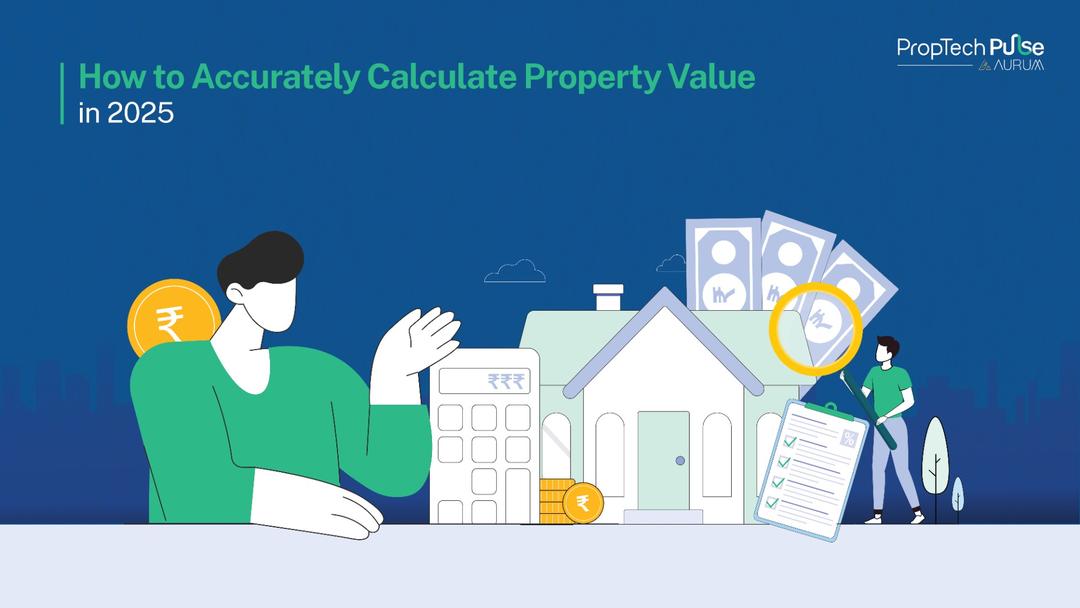Rental Market
PropTech Pulse Editorial
23rd December 2024
5 Min Read
PropTech Pulse Editorial
23rd December 2024
5 Min Read

If you’re about to dive into the world of working full-time in a new city, first off, congrats! Now, let’s talk about the not-so-glamorous part—finding a place to call home that isn’t a PG. If you’re ready to move beyond the shared bed and curfew life and want to take on the glorious chaos of living independently, buckle up because this post is your ultimate survival guide.
Step 1: Define Your Budget
The first step in finding your ideal flat is setting your rent limit. This is non-negotiable.
- Rule of Thumb: Your rent should not exceed 20% of your monthly income.
- Stretching the Budget: In rare cases (like finding your dream flat), you might stretch it to 30%, but be cautious.
- Example: If your monthly income is ₹50,000, aim for a flat with rent around ₹10,000 to ₹15,000. This ensures you have enough left over for food, utilities, and fun without living paycheck to paycheck.
Step 2: Research Like a Pro
Start your research at least a month before you move to the city. The internet is your best friend here.
- Best Websites for Listings: Nestaway, Housing, NoBroker, MagicBricks, and 99acres.
- Check Trends: Look for price ranges in different neighbourhoods. Note down patterns—this will help when it’s time to negotiate.
- Pro Tip: Create a shortlist of 5-6 properties that meet your criteria to save time during house visits.
Step 3: Choose Your Flatmate Wisely
Flatmates can be the deciding factor between a comfortable living situation and a nightmare.
- Why Flatmates Matter: They help share costs, including rent and utilities.
- Things to Look For: Similar schedules, compatible habits (cleanliness, noise levels), and shared interests.
- Red Flag: If they seem unreliable during initial interactions, trust your gut and look for someone else.
- Remember, a good flatmate can make even an average flat feel like home.
Step 4: Location, Location, Location
Finding the perfect location is like striking gold. Your flat’s location impacts your commute, lifestyle, and even your expenses.
- Proximity to the Office: Aim for a commute under 30 minutes if possible.
- Nearby Amenities: Grocery stores, gyms, public transport.
- Safety: Check the neighbourhood's safety rating or ask locals.
- Pro Tip: Visit the area during different times of the day to get a feel for noise, traffic, and overall vibe.
Step 5: The Art of Negotiation
Renting isn’t just about picking a flat; it’s also about getting the best deal.
- How to Negotiate: Use your research to highlight average rents in the area and point out any flaws in the property (if any).
- Be Ready to Walk Away: If the landlord isn’t willing to budge, don’t feel pressured to agree.
- Pro Tip: Landlords are often more flexible towards the end of the month when they’re eager to fill vacancies.
Step 6: Broker or No Broker?
You’ll likely come across brokers during your search. They can be helpful but also come with costs.
- When to Use Brokers: If you’re short on time or struggling to find options on your own.
- How to Choose the Right Broker: Focus on those with multiple listings that match your preferences.
- Pro Tip: Negotiate the broker’s fee upfront. The standard is one month’s rent, but you can often negotiate it down to half.
Step 7: Visit Flats with a Checklist
When visiting flats, don’t just rely on the first impression. Use this checklist to evaluate each property:
- Condition of the Flat: Look for leaks, mould, or damage.
- Connectivity: Check mobile and Wi-Fi signals inside the flat.
- Appliances and Furniture: Confirm what’s included in the rent.
- Neighbours: Friendly or noisy?
- Pro Tip: Take photos during visits to compare later, especially if you’re seeing multiple flats in a day.
Step 8: Seal the Deal
Once you’ve found the perfect flat, it’s time to finalise the agreement.
- Read the Lease Agreement Thoroughly: Ensure it includes details like rent, deposit, notice period, and maintenance charges.
- Get Everything in Writing: Avoid verbal agreements to prevent future disputes.
- Pro Tip: Check if the flat requires any immediate repairs and ask the landlord to address these before you move in.
Bonus Tips for First-Time Renters
- Prepare Your Documents: Landlords often ask for ID proof, employment details, and a security deposit. Have these ready to speed up the process.
- Beware of Scams: Avoid paying deposits without visiting the property in person.
- Plan Your Move: Arrange for packers and movers in advance if needed.
Conclusion: Finding Your Home Sweet Home
House hunting for the first time can be overwhelming, but with the right strategy, it becomes manageable—and even enjoyable! Remember, the goal isn’t perfection; it’s finding a place that balances your needs and feels like home. Good luck on your flat hunt, and welcome to the adventure of independent living!
Unlock the Latest in Real Estate
News, Infographics, Blogs & More! Delivered to your inbox.
“Data that drives action. Insight that inspires action. Technology that empowers action.“
“Data that drives action.
Insight that inspires action.
Technology that empowers action.“









